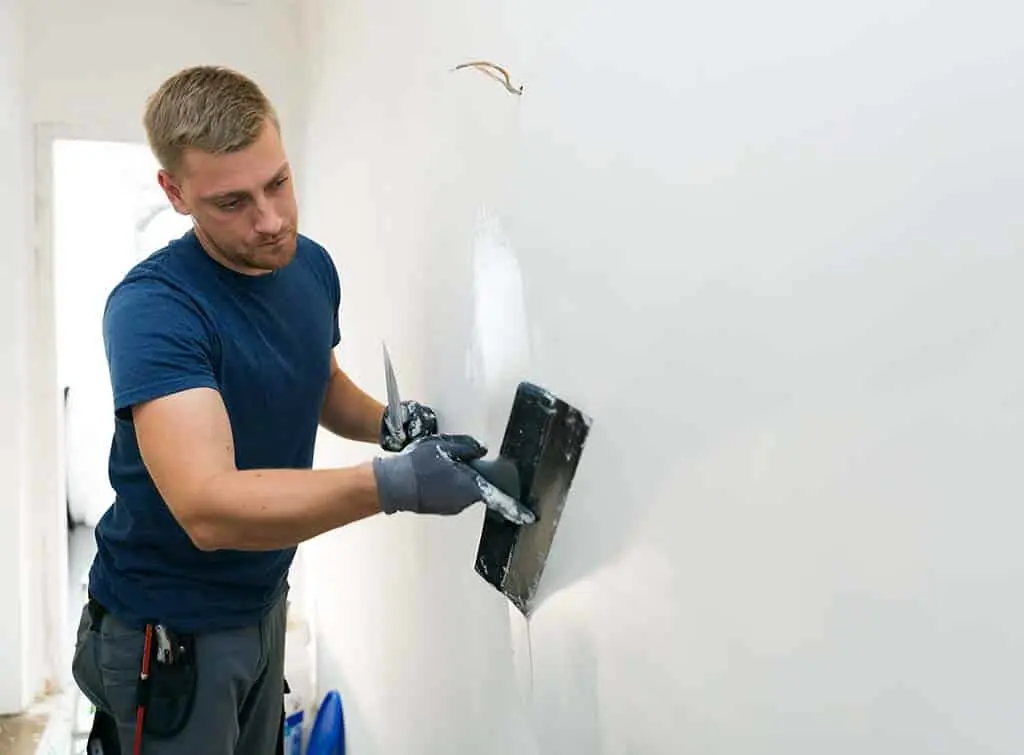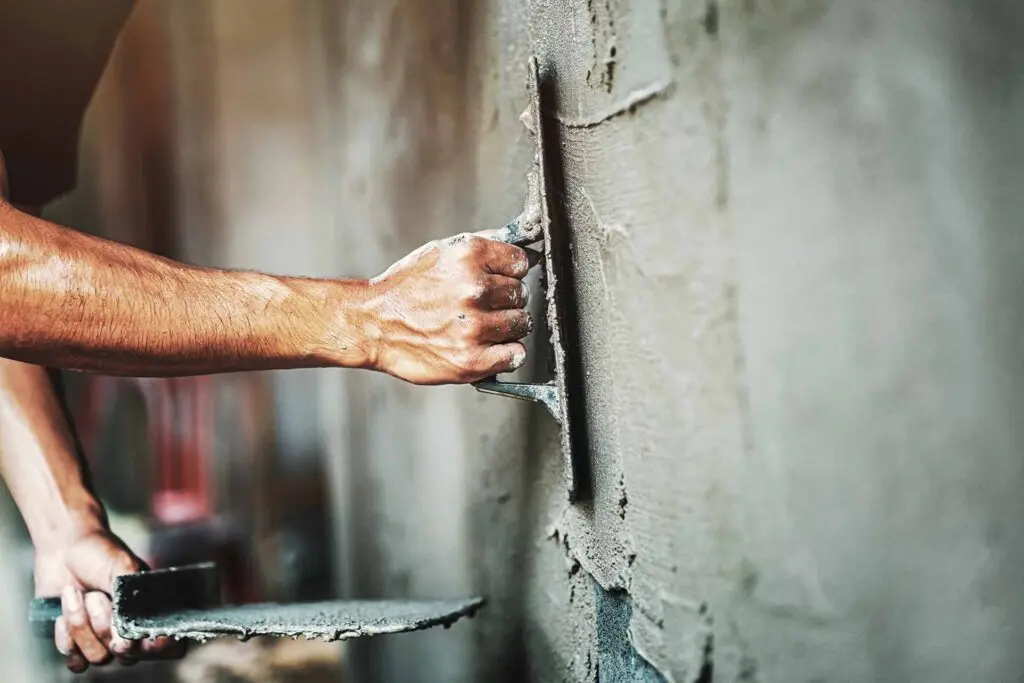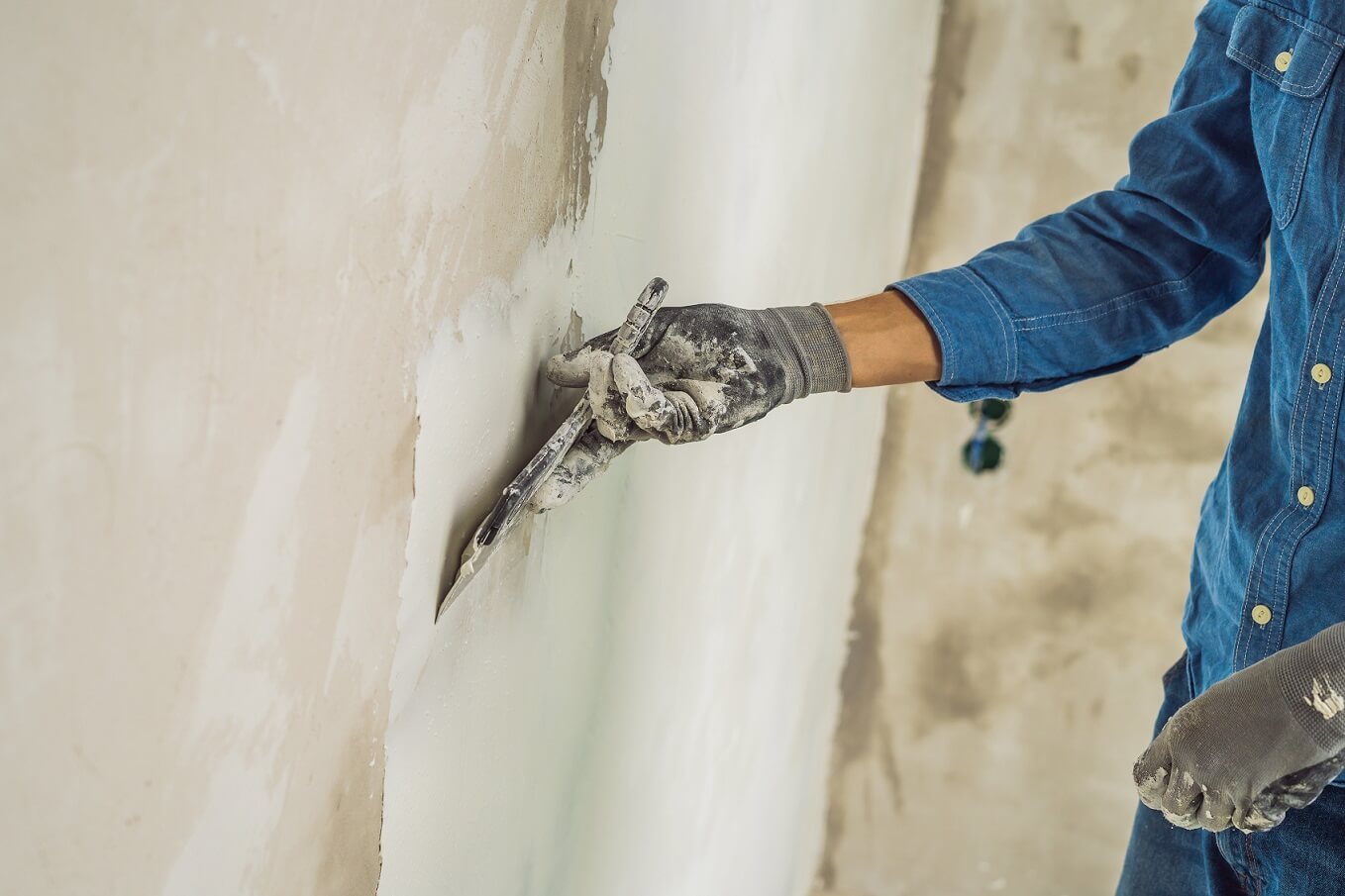Blog>Trade>Starting a Business>How to start a plastering business
Last updated: 6 January 2025
How to start a plastering business
With the home improvement market always growing, it’s never been a better time to start a plastering business. But starting your own business is no simple task. Learn how to do it the right way with our Checkatrade guide.

Why consider starting a plastering business?
If you're wondering how to start a plastering business, it means you've recognised there’s always a need for plasterers.
Whatever the project, there are a number of reasons why people might seek the services of a plasterer:
Aging walls
Replacing textured wallpaper
Dealing with damp
Conversion/extensions
Kitchen fitting
Bathroom fitting
It means that starting a plastering business can be a smart financial decision. Assuming you have what it takes to run your own business.
After all, there’s more to consider than the work on its own.
So, to help you get started, we’ve created this guide on how to start your own plastering business. From qualifications and skills to practical steps and marketing tips, we cover everything you’ll need to know.
How to market your plastering business
How to market your plastering business Are you looking for ways to grow your plastering business? Significant growth is often only possible with the help of an effective marketing strategy. If you are a skilled tradesperson but don't know where to start when it comes to marketing your plastering

Creating a plastering business plan
When starting any new business venture, the first thing you’ll want to do is create a business plan.
Having a clear business plan in place is vital before starting a plastering business. Without one, you’ll find it much trickier to specify your goals.
We recommend thinking about the following areas when designing your business plan:
Goals – your business aims and how you plan to achieve them
Startup costs – the funds you plan to use to get your business started
Finances – how you plan to monitor and handle your future business finances
Services – the types of jobs and services you plan to offer customers
Target audiences – who you intend to direct your services towards
Prices – how much you plan to charge for your different services
Work area – the area in which you plan to work
Marketing – the tools and areas you plan to promote your business in
Work hours – the amount of time you plan to work each week
Make sure you take your time thinking about all of these factors. That way, you can create an in-depth strategy to guide your new plastering business.
Not sure where to begin? We have a free business plan template you can download as a guide!

Plasterer qualifications required
If you’re already a plasterer, then chances are you don't need further training.
However, if you’re not, then it’s highly advisable to get qualified before starting a plastering business. Otherwise, customers will find it difficult to trust your new business knows what it’s doing.
If you want to hone your skills with a recognised qualification, we suggest taking a look at these plastering courses:
National Vocational Qualifications (NVQs) – Either through short course or apprenticeship
Higher National Diplomas (HNDs) – These equate to two years of study at university
You can also see what places such as North West Skills Academy and Logic4Training offer for specific plastering courses.
Getting CSCS certified
Besides general plastering qualifications**,** you’ll also need a CSCS card if you plan to work on construction sites.
Without a CSCS card, you won’t legally be able to work in these areas.
Get more plastering leads for your trade business
Why do you need more plastering leads? Walls are a crucial part of every home. Everyone likes their walls to look their best, which is where the plasterer comes to the fore. Having great interior design is pointless if it all looks a bit shabby, so there's always interest from people looking for

Other useful skills for plasterers
Beyond being a great plasterer, there's a range of other personal attributes needed to help make your business a success.
By honing these soft skills, you can be sure to make running your business that much easier.
Be sure to take note of all of the following when starting a plastering business:
Building and construction knowledge – Good practical knowledge is essential
Interpersonal skills – Working with different customers and tradespeople
Attention to detail – Plastering requires a deft hand, as does running a business
Organisation – You need to stay on top of everything that comes with running a business
Good customer service – Good relationships help create repeat business
Physical fitness – Plastering is a very physical job, so you need to be fit
Numerical skills – Maths are needed for supplies and finances
Patience and integrity – The ability to deal with issues in a calm manner is key
Enthusiasm and endurance – Remember, some things take longer than planned
There are, of course, many other soft skills to consider. Take a look at our **article on becoming your own boss **to learn more about these.
Give your new plastering business the best chance of success
Get the leads you need as a Checkatrade member
How to start your plastering business properly
Now that you’ve thought about what you want your business to look like, it’s time to get started.
We’ve laid out several key initial steps that you should take first to get your plastering business started:
1. Register your business
Straight off the bat, you want to register your new business with HMRC for tax purposes.
This is a legal requirement, and it will mean you need to consider how your business functions.
In other words, will you operate as a sole trader or a limited company? Each comes with different taxes and regulations, so the structure of your business will depend on what suits you best.
Take time to weigh up the pros and cons of each before making a decision.
2. Apply for licences and permits
As a plasterer, you may be working with or removing asbestos, and responsible for disposing of waste.
This means you'll need to get in touch with your local council to apply for the relevant licences and permits.
Not having them, if you need them, could result in a hefty fine and penalty.
Visit the Gov.uk licence finder site to find out which licences and permits you need.
When do I need building regulations approval?
To know when you need building regulations approval, you'll want to know about what's involved in building regulations generally. They are a set of standards that are devised to ensure that any building work is safe and completed to an acceptable standard. As a tradesperson it is so vital to be

3. Get plasterers' insurance
Getting the right insurance means that you are protected, should the worst happen.
Take a look at our article on choosing the right tradesperson insurance to learn more about this.
4. Accounting and bookkeeping
A big part of running a successful plastering business is being organised with your accounting and bookkeeping. Whether or not you handle this is up to you.
Be sure to read our guide on small business accounting for tips on doing this.
What's the difference between bookkeeping and accounting?
What's the main difference between bookkeeping and accounting? So, what is the difference between bookkeeping and accounting? Well, to put it simply: Bookkeeping is the process of recording and organising financial transactions Accounting is the next stage in the process, which interprets, analyses
5. Plastering tools and equipment
Finally, when starting a plastering business, you need to make sure you have the right tools for the job. Here is an essential list of tools to buy to get you started:
Plastering trowels
Buckets
A bucket trowel
A hawk
A spackle knife
A scarifier
A paddle mixer
A mortar stand
On top of this, you’ll likely also need to transport gear and materials.
And don’t forget that Checkatrade members can get a discount on tools from our partners like Selco, Wickes, and Tradepoint!
Get exclusive discounts with Checkatrade
Join and save on business essentials, vans, fuel, insurance, and more

Highlight your new plastering business with Checkatrade
With that out of the way, you should now have a good idea of how to start a plastering business.
But did you know you can get even more help when you start by joining Checkatrade? With customer interest for plastering work already coming our way, why not sign up and we can help you grow?
Get a unique business profile
Find more work from existing customers
Show off your reviews
Tap into our directories
Appear in relevant searches for plastering work
Our fixed membership option lets you build the plan that’s perfect for you and your business needs.
By signing up, you’ll get your own business profile for reviews and pictures of your work, get in touch today to learn more about joining our membership.
Plastering business FAQs
How long does it take to learn to be a plasterer?
The length of time it takes to get going will depend on your learning speed. A short course can teach you how to become a plasterer in a matter of weeks. Or you can spend several years building up your skillset.
How long should a business plan be in the UK?
If you're thinking about starting a new plastering company, it is a good idea to have a business plan in place. There is no set length it should be, but should include all of the necessary information.
How do you advertise a plastering business?
After you start out, it is only natural to look towards growing. Advertising can take many forms, including print adverts, flyers, social media, PPC and of course a website.
How do you get more plastering jobs?
Starting as a new business is one thing, succeeding is quite another. As a tradesperson, you want more leads, to help you win more work and find your feet. Checkatrade can help with that, with over 655,000 searches for plastering work in 2024 alone.*
Get exclusive discounts with Checkatrade
Join and save on business essentials, vans, fuel, insurance, and more
* Internal search data from users of the Checkatrade.com website between 1st January and 31st December 2024






